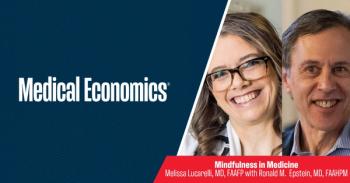
Physicians say documentation burdens are impeding patient care
New AMIA survey plans on detailing responses from doctors, other clinicians twice a year.
Physicians and other clinicians say they are spending too much time documenting details about
The American Medical Informatics Association (AMIA) published data from its inaugural 25x5 Task Force “TrendBurden: Pulse Survey on Excessive Documentation Burden for Health Professionals,” as part of this month’s AMIA 2024 Clinical Informatics Conference in Minneapolis, Minnesota.
The results weren’t good. A full
“The TrendBurden results illuminate the pervasive challenge of excessive documentation burden faced by health care professionals across the nation,” AMIA 25x5 Task Force Chair Sarah Rossetti, RN, PhD, FAAN, FACMI, FAMIA, said in a
Dating from April this year, the survey had 1,253 responses from physicians and surgeons (35.67%) and other clinicians in 49 states and Washington, D.C. It aims to collect data from doctors and all health care professionals, licensed or nonlicensed, who document patient care in
Survey results
The numbers may vary from other surveys about administrative burdens that contribute to burnout in physicians and other clinicians, and that detract from patient care. But they support the general trend that doctors, nurses and other clinicians feel they must spend too much logging details on EHRs instead of working with patients on treatments.
The baseline survey had four other statements that respondents could rate from strongly disagree, disagree, neither agree nor disagree, agree, or strongly agree. The tally also had breakout results for physicians and nurses.
- “The amount of time and effort I spend documenting patient care is appropriate.” Overall, 73.26% disagreed or strongly disagreed, with 82.2% of physicians and 71.1% of nurses disagreeing.
- “I finish work later than desired or need to do work at home because of excessive documentation tasks.” This had strong agreement: 77.42% overall, 83.1% of physicians and 72.8% nurses.
- “Recently, there has been a noticeable decrease in the time or effort or both needed for me to complete my documentation tasks.” Disagreement reached 66.64% overall, with 74.2% of physicians and 60.8% of nurses.
- “I find it easy to document patient care using the electronic health record.” This statement had 44.61% disagreement overall, with 23.62% neutral and 31.76% agreeing or strongly agreeing. At 56.9%, the majority of physicians disagreed, with agreement and neutral feelings roughly split at about 22% and 21%. Nurses were more divided, agreement and disagreement tied at about 38%, and about 23.5% neutral.
"The time and effort required by health care professionals for documentation is severely impacting their work-life integration," said Vicky Tiase, PhD, RN-BC, FAMIA, FAAN, FNAP 25x5 Task Force Policy Workstream Lead. "Addressing this issue is essential to support the well-being of our clinicians and ensure they can continue to provide high-quality patient care."
Respondents included 24.72% registered nurses, 13.65% other professionals, 8.38% educators, and 5.83% licensed social workers. Work settings included outpatient clinics (31.76%), inpatient/hospital settings (30.17%), academic medical centers (21.47%), community-based organizations (21.15%), and telemedicine/telehealth (9.58%).
Continuing plans
AMIA said the survey will be administered again in early fall this year, seeking a broader reach to track changes over time. The organization hopes the results will serve as guidance for policymakers and health care organizations seeking strategies to reduce excessive documentation burdens.
“This effort is critical in fostering a health care environment that supports both the quality of patient care and the well-being of healthcare professionals,” AMIA’s official announcement said.
Newsletter
Stay informed and empowered with Medical Economics enewsletter, delivering expert insights, financial strategies, practice management tips and technology trends — tailored for today’s physicians.





